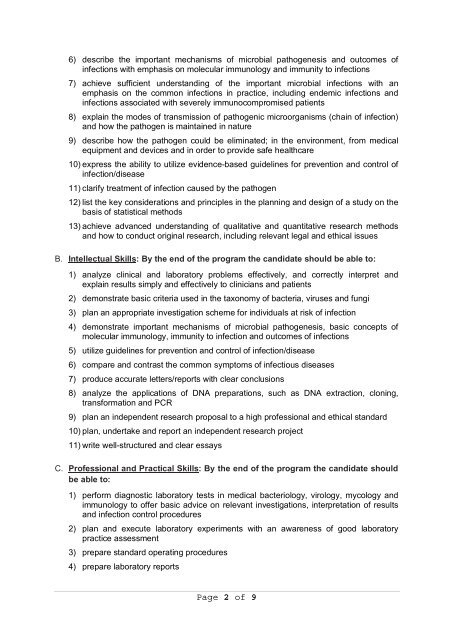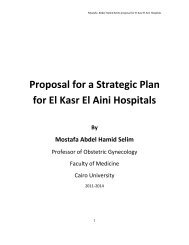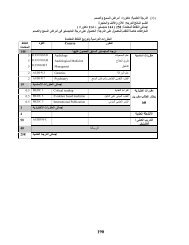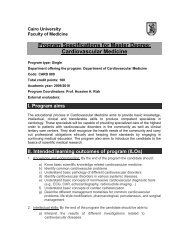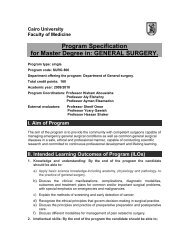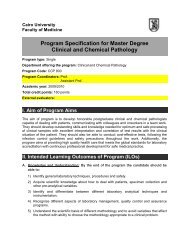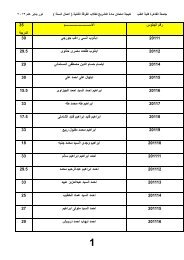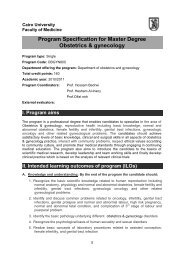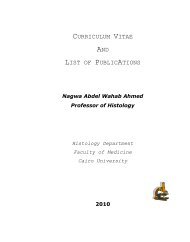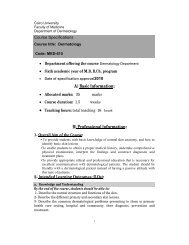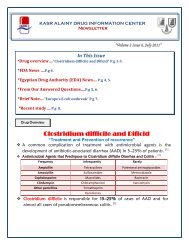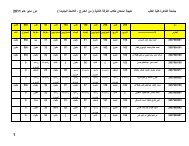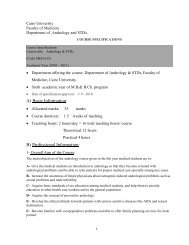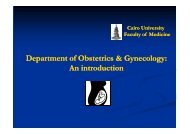IM 800
IM 800
IM 800
Create successful ePaper yourself
Turn your PDF publications into a flip-book with our unique Google optimized e-Paper software.
6) describe the important mechanisms of microbial pathogenesis and outcomes of<br />
infections with emphasis on molecular immunology and immunity to infections<br />
7) achieve sufficient understanding of the important microbial infections with an<br />
emphasis on the common infections in practice, including endemic infections and<br />
infections associated with severely immunocompromised patients<br />
8) explain the modes of transmission of pathogenic microorganisms (chain of infection)<br />
and how the pathogen is maintained in nature<br />
9) describe how the pathogen could be eliminated; in the environment, from medical<br />
equipment and devices and in order to provide safe healthcare<br />
10) express the ability to utilize evidence-based guidelines for prevention and control of<br />
infection/disease<br />
11) clarify treatment of infection caused by the pathogen<br />
12) list the key considerations and principles in the planning and design of a study on the<br />
basis of statistical methods<br />
13) achieve advanced understanding of qualitative and quantitative research methods<br />
and how to conduct original research, including relevant legal and ethical issues<br />
B. Intellectual Skills: By the end of the program the candidate should be able to:<br />
1) analyze clinical and laboratory problems effectively, and correctly interpret and<br />
explain results simply and effectively to clinicians and patients<br />
2) demonstrate basic criteria used in the taxonomy of bacteria, viruses and fungi<br />
3) plan an appropriate investigation scheme for individuals at risk of infection<br />
4) demonstrate important mechanisms of microbial pathogenesis, basic concepts of<br />
molecular immunology, immunity to infection and outcomes of infections<br />
5) utilize guidelines for prevention and control of infection/disease<br />
6) compare and contrast the common symptoms of infectious diseases<br />
7) produce accurate letters/reports with clear conclusions<br />
8) analyze the applications of DNA preparations, such as DNA extraction, cloning,<br />
transformation and PCR<br />
9) plan an independent research proposal to a high professional and ethical standard<br />
10) plan, undertake and report an independent research project<br />
11) write well-structured and clear essays<br />
C. Professional and Practical Skills: By the end of the program the candidate should<br />
be able to:<br />
1) perform diagnostic laboratory tests in medical bacteriology, virology, mycology and<br />
immunology to offer basic advice on relevant investigations, interpretation of results<br />
and infection control procedures<br />
2) plan and execute laboratory experiments with an awareness of good laboratory<br />
practice assessment<br />
3) prepare standard operating procedures<br />
4) prepare laboratory reports<br />
Page 2 of 9


